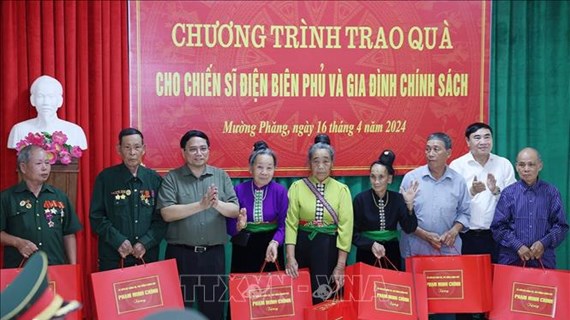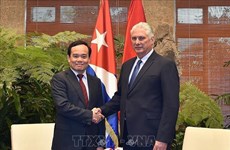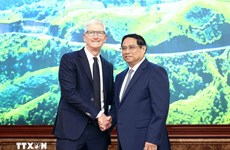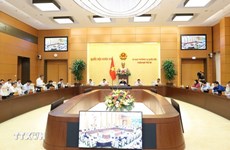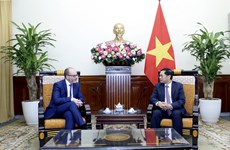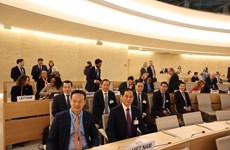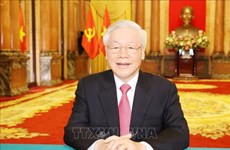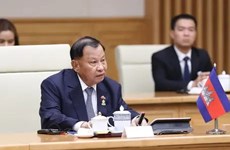Vietnam, Cuba write new pages in glorious history
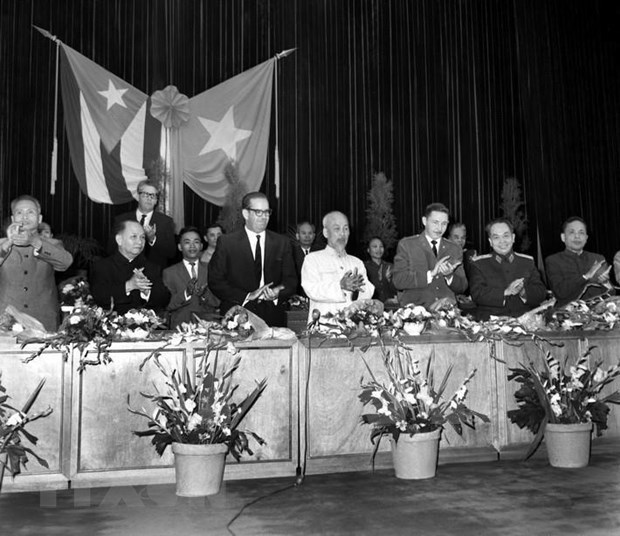
President Ho Chi Minh and top Vietnamese leaders attend a meeting in Hanoi in late October 1966 that gathered together over 1,000 people from all walks of life to welcome a Cuban delegation led by President Osvaldo Dorticós Torrado. (Photo: VNA)
Assessing the long-standing relationship, Vu Trung My, deputy head of
the Department for the Middle East, Africa and Latin America under the Party Central Committee's Commission for External Relations, said the ties, as leader Fidel Castro once
said, have “no precedent in international relations” and are being constantly cultivated
and developed in all respects, reaping significant achievements and demonstrating
the affection between and the steadfast revolutionary stance of the two Parties,
States and people of Vietnam and Cuba.
These contributed to the revolutionary cause and the building
of socialism in each country, My added.
During Vietnam’s struggle for national independence and reunification, the Cuban Party, State and people put themselves out for their Vietnamese
peers. In his trip to Vietnam’s newly-liberated region in central Quang Tri province
in mid-September 1973, then First Secretary of the Communist Party of Cuba Central
Committee and Prime Minister Fidel Castro, said: “For Vietnam, Cuba is willing to
shed its blood.”
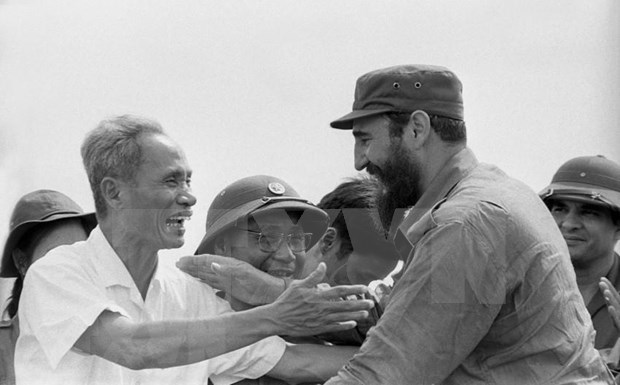 Fidel Castro and Prime Minister Pham Van Dong at a meeting on September 15, 1973, in Quang Tri, which was held to welcome the Cuban leader. (Photo: VNA)
Fidel Castro and Prime Minister Pham Van Dong at a meeting on September 15, 1973, in Quang Tri, which was held to welcome the Cuban leader. (Photo: VNA) He was the first and only foreign leader to visit the area, despite
the geographical distance and the dangers of war. His presence was a great source
of encouragement for Vietnamese soldiers and the people to press ahead with their
fight for the liberation of South Vietnam and national reunification.
Cuba also helped Vietnam during this period by providing
human resources training and sugar and medical aid, as well as upgrading the Ho
Chi Minh Trail and other routes in central Quang Tri and Thua Thien-Hue
provinces, for the transportation of personnel and materials from North Vietnam to the
southern battlefield.
As the two countries have focused on building socialism, Cuba
has continued its comprehensive support for Vietnam via maintaining scientific and
technological cooperation, funding the construction of production facilities, and supplying
crop varieties and breeds, among other things.
When Vietnam embarked on its renewal process and Cuba entered
the most difficult period of the Cuban Revolution, Vietnam assisted its friend,
reflecting its solidarity, friendship, and faithful support for the righteous revolution.
Through several projects, Vietnam gradually helped Cuba
gain food security. Much later, amid the COVID-19 pandemic, the Vietnamese people donated necessary
medical equipment and cash to support Cuba’s pandemic control and prevention work. In turn,
Cuba sent experienced doctors to Vietnam, adding to the country’s medical workforce.
My said that as the world is changing rapidly, the fortification
of the special friendship is suitable with the needs of both nations during their protection
of national independence and territorial sovereignty as well as national construction.
In the time to come, the two sides will work to take
the bilateral relationship forward, with the two parties’ ties at its core. Close
coordination will also cover the fields of defence, security, external relations,
trade, and people-to-people exchanges.
Nguyen Hai Minh, head of the Ho Chi Minh Communist Youth
Union Central Committee’s international department, attached importance to educating
the younger generations about the Vietnam - Cuba traditional friendship,
especially amid complex global developments.
A series of educational activities were held to mark the
60th anniversary of diplomatic relations, including an online quiz on
ties and a painting contest for children on the Vietnam - Cuba solidarity, which received
more than 1 million entries.
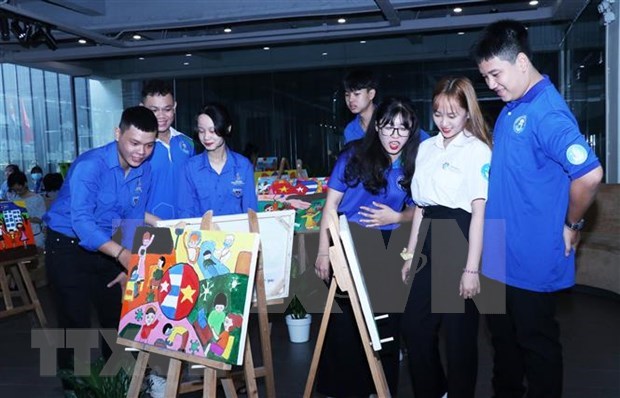
Paintings of the contest on display. (Photo: VNA)
Minh said the two countries’ youth unions plan to expand
cooperation in experience exchange, to increase young people’s engagement in new-style
rural area building, socio-economic development, bio-technology, and tourism.
Exchanges among young doctors, journalists, and overseas
students are also necessary, he said./.





